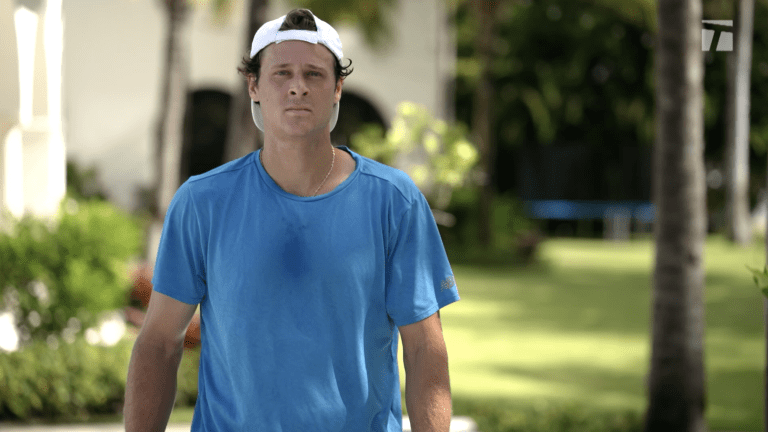News
Inspiration and motivation: JC Aragone, Type 1 Diabetic and pro tennis player
By Nov 26, 2022News
ATP Tour sets out safeguarding policy with training for players and potential for bans
By Dec 19, 2025News
The ATP is adding a heat rule like the one the women have had for more than 30 years
By Dec 15, 2025News
Away from Madrid's big stage, Naomi Osaka and Stan Wawrinka reach finals at French events
By May 03, 2025News
Adrian Mannarino headbutts racquet butt cap and draws blood, recalling Mikhail Youzhny
By Jan 03, 2024News
22-year-old Iga Swiatek to surpass 20 million dollars in career prize money
By Aug 28, 2023News
20-year-old Carlos Alcaraz surpasses 20 million dollars in career prize money
By Aug 21, 2023News
Emma Raducanu undergoes 'minor' surgical procedures on ankle and hands
By May 03, 2023News
The ITF's Katrina Adams stays on the front lines for women with the Tory Burch Foundation Sports Fellowship
By May 02, 2023News
Daniil Medvedev, Stefanos Tsitsipas hit major career prize money milestones after Monte Carlo
By Apr 17, 2023Inspiration and motivation: JC Aragone, Type 1 Diabetic and pro tennis player
"If I can do it," Aragone says during Diabetes Awareness month, "I felt like others could do it."
Published Nov 26, 2022
Advertising
Advertising
Advertising

"It was an extremely difficult transition so I kind of turned to tennis as this escape. And I just immediately fell in love with it.”